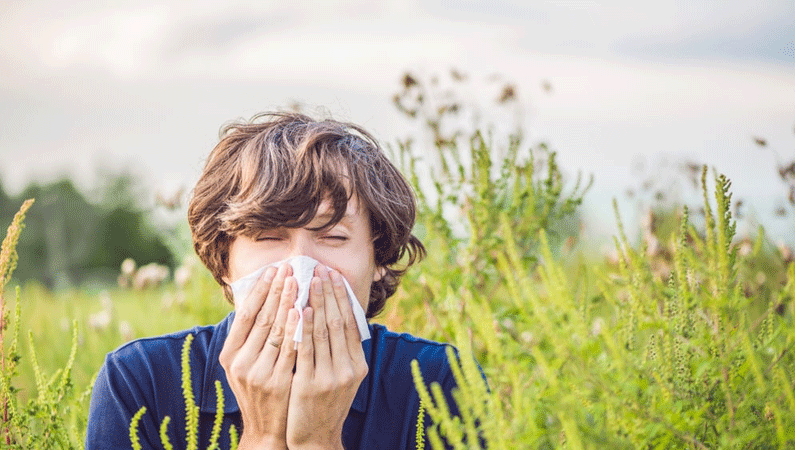
An allergy is the reaction of the body's immune system to any foreign substances entering the body. The immune system is the security guard of your body, and allergies are how it protects the body. For different people, the factors that trigger allergic reactions might be different. The immune system will react to these foreign substances mainly by developing rashes, swells, sneezes, etc.
Allergy is the immune system's reaction to the foreign substance entering the body. The foreign substance which causes or trigger allergy is known as allergens. When the immune system detects any allergens in the body, it will produce antibodies to fight the allergens. Along with the production of antibodies, inflammation, swelling, itchiness, rashes, etc., are the body's reactions to an allergen. The intensity of the allergic reactions depends on the person's immunity system and the allergens. It can be a mild reaction and a life-threatening situation depending on different factors.
An allergy occurs when the immune system overreacts to an allergen, treating it as an invader and fighting it. There is a wide range of symptoms associated with this, from annoying to life-threatening. As a defense against an allergen "invader," the immune system makes antibodies called IgE, which cause certain cells to release chemicals (such as histamine) into the bloodstream.
Allergies can be categorized into different types based on the allergens. Some of the common causes of allergies are:
The symptoms of allergies vary according to the allergen you are exposed to. Some of the typical symptoms of allergies are:
The doctor will inquire about the symptoms of the allergies and analyze your medical history. A blood test or skin test might also be taken to confirm the cause of your allergy. Once the allergen is identified, the doctor will start with the treatment options.
The main drugs used to reduce the symptoms are antihistamines, corticosteroids, etc. Immunotherapy is also an option in which you will be given injections or shots over a few years so that your body gets adjusted to the allergens. If you have a chronic condition of allergies, your doctor might also give you epinephrine shots to use in case of emergencies.
Allergic rhinitis often called allergies or hay fever occurs when your immune system overreacts to particles in the air that you breathe you are allergic to them. Your immune system attacks the particles in your body, causing symptoms such as sneezing and a runny nose. The particles are called allergens, which simply means they can cause an allergic reaction. People with allergies usually have symptoms for many years. You may have symptoms often during the year, or just at certain times. You also may get other problems such as sinusitis and ear infections as a result of your allergies. Over time, allergens may begin to affect you less, and your symptoms may not be as severe as they had been.